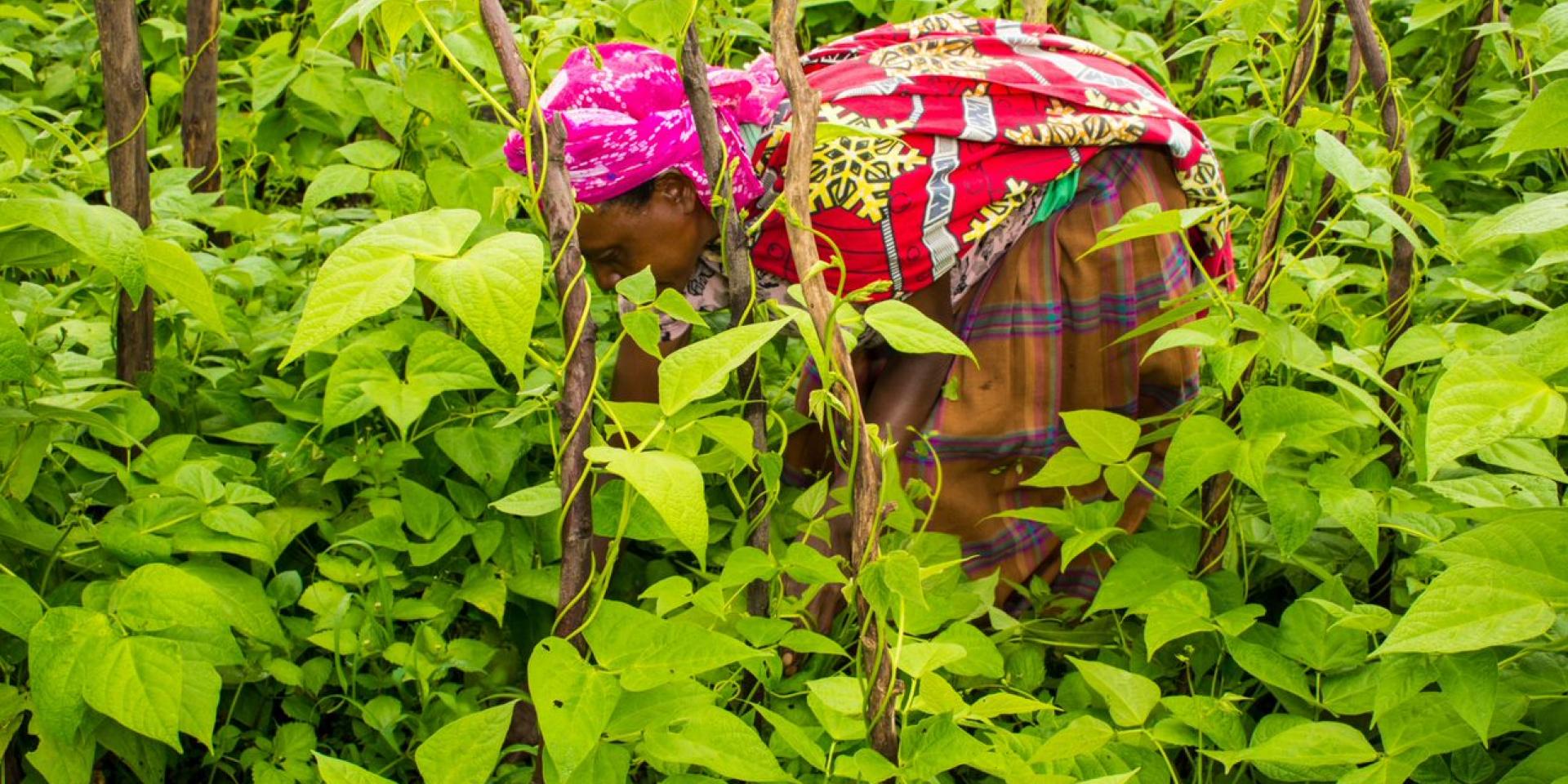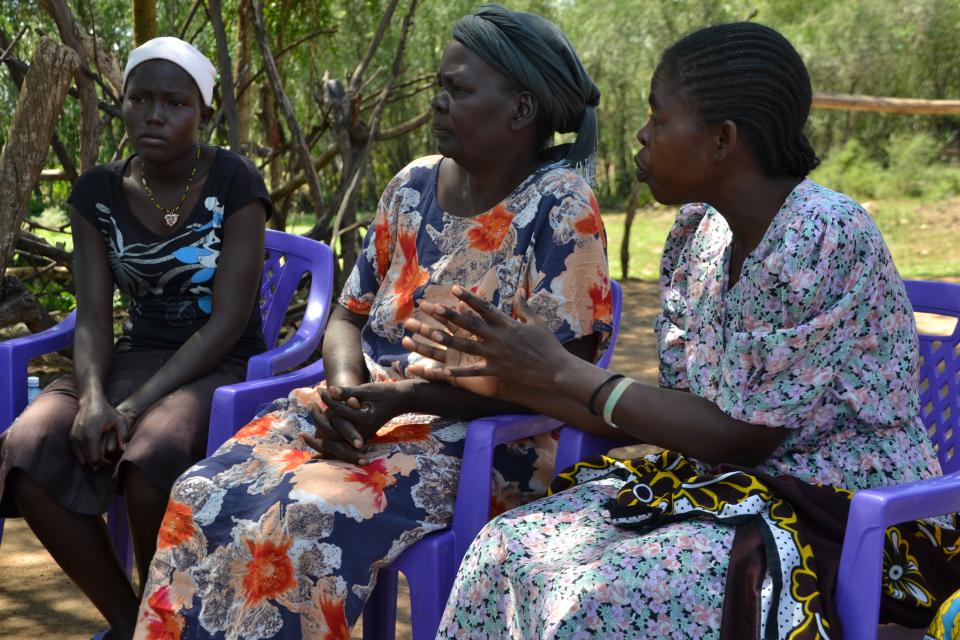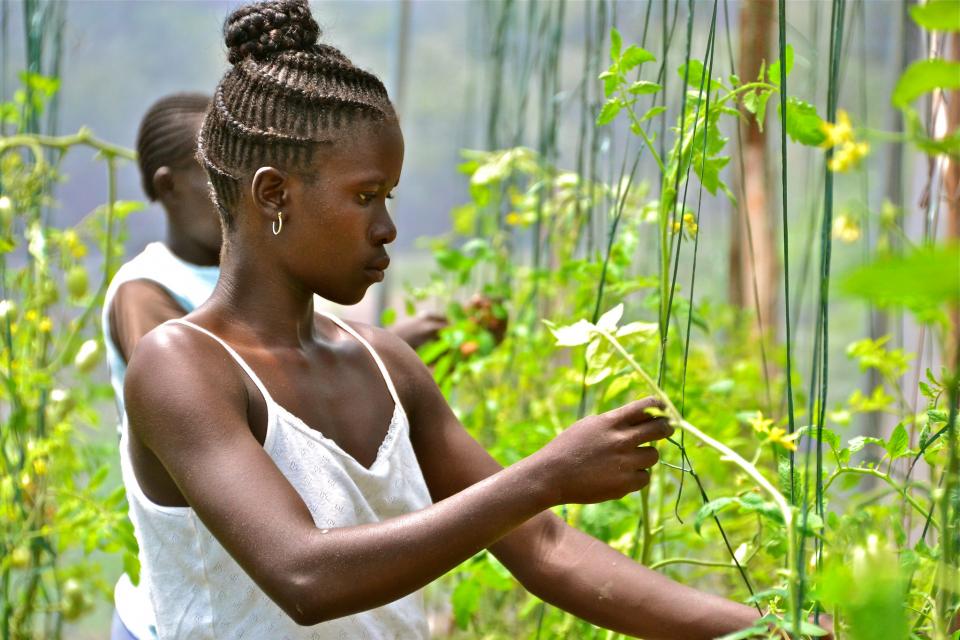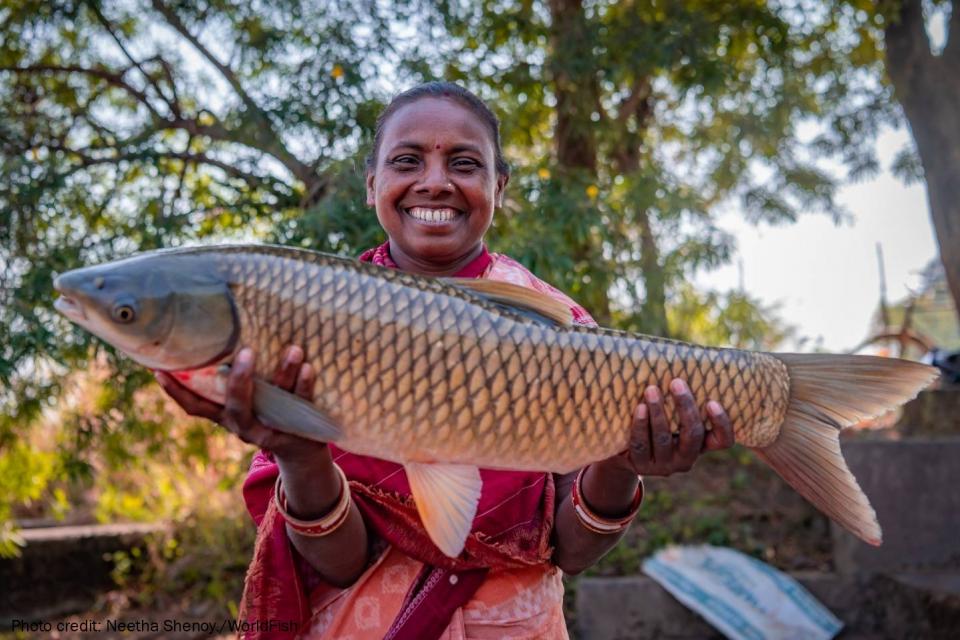Transforming research into action: social and gender resilience in the face of climate shocks
 Photo: Alliance of Bioversity and CIAT.
Photo: Alliance of Bioversity and CIAT.
The overlapping effects of climate change, global pandemic and crises, and gender-based violence are threats to women’s resilience in agri-food systems. However, women can also be resilient agents of transformative change. Despite being marginalized in climate action discourse, women’s determination and resourcefulness offer valuable insights for building resilient agri-food systems.
The 2023 international research conference ‘From research to impact: Towards just and resilient agri-food systems’ hosted by the CGIAR GENDER Impact Platform and the Indian Council of Agricultural Research (ICAR) took place in October 2023. In this series of blog posts, the leads of the event’s six themes reflect on key takeaways from the presentations and discussions that took place under each theme. Here Eileen Nchanji and Sahar Alnouri explore Theme 1: A gender and social inclusion lens on resilience in the context of climate change, COVID and other shocks and stresses.
The gender gap in food security has significantly widened, increasing by eight times since 2018. This alarming statistic, shared by Andrew Campbell (CGIAR’s interim Executive Managing Director) during the inaugural session of the conference, highlights the pressing need to understand and tackle gender disparities affecting agriculture and resilience to climate change.
A central message of the conference was that while women can be resilient agents of change, there is major gap between research, policy and practical application. Cheela Soumya (Indian Council of Agricultural Research’s Indian Agricultural Research Institute; ICAR-IARI), noted that when dealing with gender-based violence, for example, the system focuses on collecting data, which could potentially retraumatize victims.
Addressing these gaps between the requirements of research, the practical application of policy and the potential impact on women is not only critical for social justice, but also crucial for building resilience to climate change.
Three crucial actions emerged from the discussions on gender, resilience and climate change.
Bridging research and action
Many participants stressed the importance of translating research findings into practical solutions. There were calls for more effective implementation strategies, as highlighted by Jamaludheen Avunchikkad (ICAR-IARI). Limited funding remains a significant hurdle, with resources often not reaching women.
Likimyelesh Nigussie (International Water Management Institute) pointed out the overlap between funding challenges and existing gender-related constraints affecting women’s resilience. For example, women benefit less from the climate financing due to limited access to land, resulting in low participation in climate-smart agriculture. Nigussie also identifies lack of gender-responsive financing mechanisms as a bottleneck to women's access to credit at the grassroots level.
Making climate finance work for women
Despite their pivotal roles in agri-food systems, women are often excluded from climate finance mechanisms. Avunchikkad pointed out that women still face barriers in accessing financial support. These challenges hinder the translation of research into tangible impacts, an issue acknowledged in COP 28’s agenda.
Avunchikkad noted that fostering solutions such as gender-sensitive Nature-Positive Solutions training and ensuring women have access to resources and services can help develop agri-food systems that are more resilient and sustainable. As used by Avunchikkad, Nature-Positive Solutions are agricultural innovations and interventions that mitigate impacts of climate change on nature and its potential contribution its restoration and enhancement.
Perka Shiva Kumar, also from ICAR-IARI, noted blended finance approaches that merge concessional funds and private finance are needed to bridge the gender gaps in financing. Achieving this requires combining concessional funds and private-sector investments to create a more accessible and diverse pool of financial resources for men, women and youth in agriculture.
These approaches resonate with the need for gender-responsive sociotechnical innovations tailored to enhance women’s resilience, as discussed in various breakout sessions.
Developing technological solutions with women in mind
Insights from the conference emphasized the importance of technology and innovation aligning with local contexts. Dickson Kinuthia (International Food Policy Research Institute) highlighted how localized technologies, such as water pans, help in both water conservation and water harvesting, stressing the importance of leveraging local practices. Water pan excavation leverages local practices for collecting and storing water in places with erratic rains.
Engaging women not just as users of technologies, but as partners and drivers of climate change solutions, emerged as a pivotal strategy, echoed by Vicki Wilde of the Bill & Melinda Gates Foundation.
A shifting focus
In conclusion, this theme emphasized the path of adaptation, resilience and transformation for agri-food systems. As the focus shifts from research to actionable impact, there is determination for significant actions that position women as key partners in the innovation process for a more resilient, fair and sustainable future for agri-food systems.
##
The authors wish to acknowledge Lutomia Cosmas, Senior Research Associate - Value Chain Specialist at the Alliance of Bioversity and CIAT, for contributing to this post.


